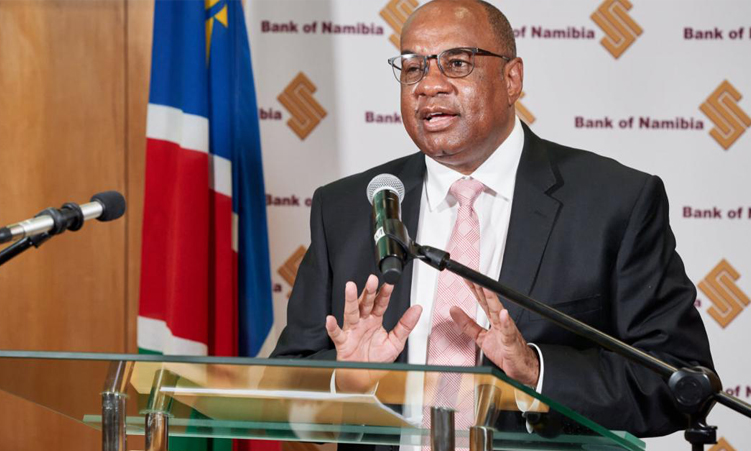Some Bank of Namibia (BoN) board members are allegedly pushing central bank governor Johannes !Gawaxab to cancel a decision to hand-pick an Indian company to develop Namibia’s digital financial system – worth N$82 million.
The governor’s spokesperson, however, says there is nothing improper about the project.
The system is seen by some insiders as a progressive project aimed at making electronic banking accessible to people at informal and rural communities.
However, a section of !Gawaxab’s management is questioning the tender process which favoured an Indian state-owned company called National Payments Corporation of India (NPCI) International Payment Limited.
The central bank wanted the company to create an electronic system, known as the Unified Payment Interface platform, for N$82 million in five years.
This includes an initial licensing fee of US$2,5 million (N$44,7 million) and yearly subscription fees of US$250 000 (N$4,4 million), plus project implementation costs.
The BoN will have to renegotiate the subscription fees after five years if it wants to continue using the platform.
The central bank reportedly failed to follow procedure before pushing for the Indian company.
Sources familiar with this matter say !Gawaxab is facing criticism from members of his executive team and the BoN’s board for not following the rules.
Two sources told The Namibian that some board members called for the tender process to be cancelled and are pushing for a new transparent process in line with the BoN’s rules.
Some also called for the Indian state-owned firm to be disqualified from the new process.
Another central bank board director allegedly suggested cancelling the tender during a meeting last week.
BoN spokesperson Kazembire Zemburuka yesterday said there was nothing untoward about the project, adding that a tender process in line with the central bank’s rules was underway.
Red flags have been raised about the manner in which !Gawaxab has allegedly pushed for the deal.
The Namibian has been told that a decision was made and the banks’s executive management and the tender committee were asked to rubber-stamp the decision.
No public call for an expression of interest was made. Sources also said a project of that nature and cost does not qualify for tender exemptions.
!Gawaxab and a small team he selected to champion the project allegedly made the decision.
Zemburuka in his emailed response said there was a consultative process, which concluded that access to essential and affordable financial services remains low in rural areas and the informal sector.
The Bank of Namibia, through its 2022 to 2024 strategic plan, saw the need to address financial inclusion through regulatory intervention.
The bank then explored local and international solutions for the creation of affordable, interoperable, fast, and cost-efficient payment services in the economy.
Indian outfit NCPI was then invited to a workshop with local national payment system participants, hosted by the BoN.
The aim of the workshop was to enhance the understanding of the domestic key stakeholders as far as the instant payment platform and interoperability is concerned.
“There was no condition attached,” Zemburuka said.
“It has come to the stage where it is now busy with a standard procurement procedure as outlined in the bank’s internal policies, which requires approval from various structures, including the board of directors of the bank and the minister of finance, where relevant,” the spokesperson said.
He said the procurement process will include invitations of expression of interest from domestic, regional and international vendors, among others.
Zemburuka said all governance processes will be followed, and relevant structures, including the government, will be consulted for approval where applicable.
Zemburuka could, however, not explain why the central bank was in contract talks with NPCI.
According to sources, the bank’s project team is dealing with NPCI only.
The Namibian has also been informed that the BoN selected three international entities and invited them to make presentations on the possibility of creating and implementing a payment system for Namibia.
The criteria used for identifying them are not known.
The BoN has declined to provide The Namibian with the criteria used to select the Indian company or the names of the other two entities.
The project team, allegedly selected by !Gawaxab, selected NPCI, which charges N$82 million to implement and run the system for five years.
Other questions raised about the project involve the possibility of the central bank creating another parastatal to run the system, and whether a study has been conducted on the viability of creating such an entity.
The BoN last week also made headlines for applying pressure on the Business and Intellectual Property Authority to implement an N$82-million programme without following procedure.
The said initiative is in line with international requirements for Namibia to fight money laundering.
It aims to make business and company ownership information more accessible to the public.
It appears that Bipa is behind schedule with the deadline set and could risk the country being greylisted as a money-laundering destination.
Stay informed with The Namibian – your source for credible journalism. Get in-depth reporting and opinions for
only N$85 a month. Invest in journalism, invest in democracy –
Subscribe Now!






